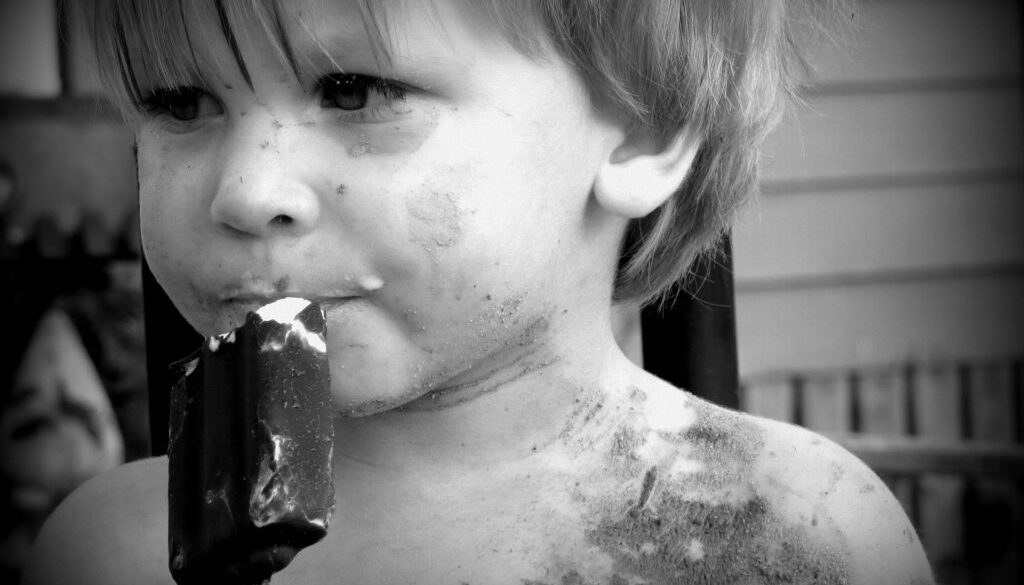A Call to Authenticity
By Rabbi Esther Hugenholtz
Sermon Vayechi 2018
A Call to Authenticity
I wrote this sermon like I write most of my sermons: on a Friday afternoon, just after the challah has been made and before we sit down to a family Shabbat dinner. For an hour or so, before rushing off to the synagogue, my family will manifest the idyll: clean children at the table, and a content mother and father basking in the light of the Shabbat candles.
This time of year is the time of the idyll: a homespun image of the family, ramped up in the Victorian era in a marriage-of-convenience between petite bourgeois values and the emerging consumer economy. It is the 19th century that has given us some of our most enduring images of family life: the put-together mother as the ‘angel in the home’, the father as the earnest and honest provider and children – preferably at least one of both sexes – who know their place in the universe. In this day and age, the image has been tweaked somewhat to accommodate feminism and LGBTQ advances, but the high bar for perfection is much the same. If anything, I dare say, the bar has been higher as we edit, curate and self-document the joyous and elegant moments of our lives, cementing a narrative of domestic bliss. This story is cranked up to full volume during the Holiday Season where Christmas, ever dominant, and in its wake, Chanukkah, subject us to this tyranny of harmony.
The truth is, of course, much grittier. As I was typing this sermon, my two beauteous children were chasing each other with foam swords, the living room looks like toys exploded all over it and an ever-insurmountable pile of dishes is guilt-tripping us into washing them (we do not have a dishwasher in our lease). These are of course not the images that make it into the family album or onto the social media account. It is not the story we are comfortable telling about ourselves.
And yet, the Torah encourages us to do exactly that. When we sit down to our Shabbat dinner, our children have created a chiddush (an innovation) for our ritual of blessing them. After we have blessed them, their minhag is for them to bless us. They place their soft little hands upon our heads and insist on repeating the Priestly Blessing in Hebrew. At that moment, the messes, the arguments, the tantrums, the stresses dissolve in the love that binds us all together.
The Torah asks us to hold both realities in our hands: the great blessing of relationships – and not just parental or familial relationships and not just relationships created through blood. And also, the innate conflict and tension that seems an inescapable part of the human condition. Parashat Vayechi appears paradigmatic in holding both these realities. We witness an elderly and transformed Israel blessing his children, a redemptive parallel to his father, Isaac.
We see the closeness between Joseph and his father, the reconciliation of siblings to one another. The promise of a new life in Egypt, the successful negotiation of identity and values in a Diasporic encounter. These ancient components are still the building blocks of contemporary Jewish aspiration.
Still, there is another side: unspoken power dynamics, a switch-and-bait between Ephraim and Manasseh, the younger grandson blessed with the blessings for the older. The unrequited love that Israel/Jacob holds for his Rachel, his grief still fresh. An uncertain future of estrangement and assimilation.
These two realities are dialectically resolved in Israel’s blessings that he bestows – and sometimes metes out – to his children. The blessings are poetic, raw, honest. Sometimes kind, sometimes castigating. The relationships that Israel describes with his sons, the descriptors he utilizes for their personalities and destinies break the tyranny of harmony: Reuben is ‘pachaz kamayim’, ‘unstable as water’ as he is accused of sleeping with his father’s concubine. Shimon and Levi are not spared criticism either: ‘k’lei chamas m’cheroteihem’ – ‘their weapons are tools of lawlessness’. Issachar, though not particularly morally fraught is basically accused of being a simpleton: ‘chamor garem’ – ‘a strong-boned donkey’. At the same time, Judah is praised for his leadership – ‘the scepter shall not depart from Judah’, Joseph is blessed with fecundity and prosperity – ‘birchot avicha gavru al birchot horai’ – ‘the blessings of your father exceed the blessings of my ancestors.’
Dan, likewise, is accorded authority and dignity – ‘Dan yadin amo’ – ‘Dan will judge his people’. In short, all of these blessings are truthful. They are a mixed bag. They play favorites. They acknowledge the unique and sometimes troubling personalities of each son. They do not comply with the nostalgic idyll of a Norman Rockwell painting or a savvy mommy blogger with a DSLR camera. The family dynamics of the Torah do not match the hopes of a Hallmark card. But they do oh so very often match our own experience.
It is not perfection that the Bible strives for; it is deep and abiding relationship. Conflict and its resolutions are part of that relationship. Love and the inevitability of loss are part of that relationship. These are the things we can relate to. It is deeply meaningful that the portion opens with an account of Israel’s illness: ‘Vayomer leYosef hineh, avicha choleh’ – ‘Joseph was told, behold, your father is ill.’
It’s a moment that is meant to jolt us. It is the first mention of illness in the Torah and Midrash Rabbah recounts that each Patriarch prayed for an existential quality of suffering to strengthen their character and faith: Abraham prayed for old age, Isaac prayed for affliction and Jacob (Israel) prayed for illness. All three knew that the fullness of life wasn’t found in perfection. They knew that blessings resonate best in messy places, that relationships are forged in moments of vulnerability.
Navigating relationships, be they familial, professional or romantic, is challenging enough. Let us be kind to ourselves this holiday season and unbind our hearts from false expectations and unyoke our souls from the tyranny of harmony. Instead, let’s turn our hearts to each other in authentic relationship. May we all be blessed with tender moments and a healthy amount of conflict and the ability, as foretold by the prophet Malachi: ‘V’heishiv lev avot al banim v’lev banim al avotam’ – ‘He will turn the hearts of the parents to their children, and the hearts of the children to their parents’.
Ken yehi ratzon, may that be God’s will.




